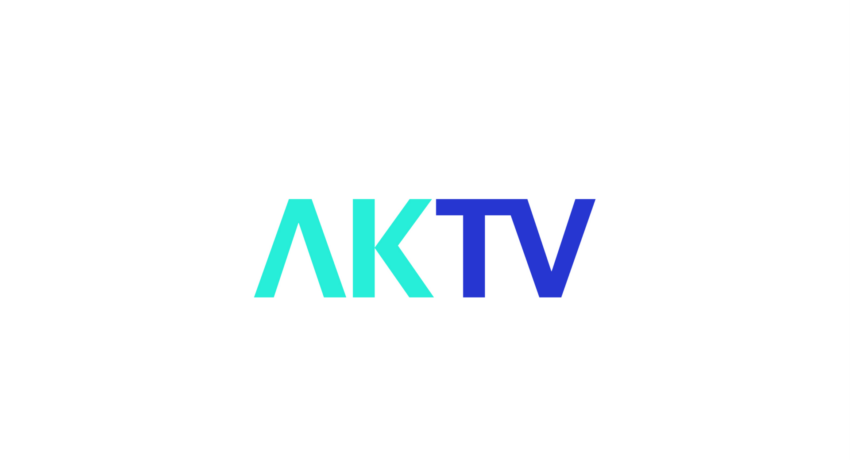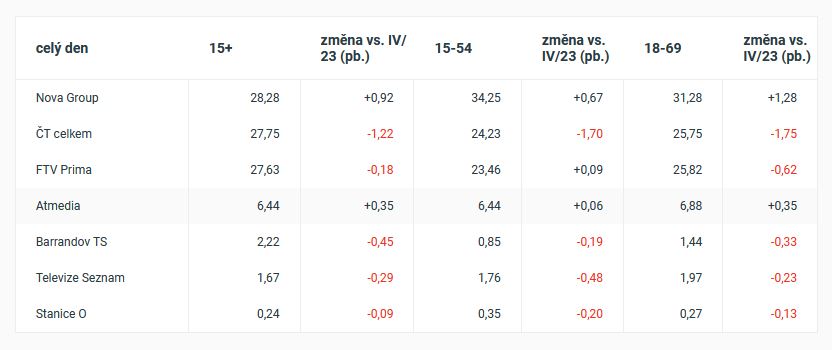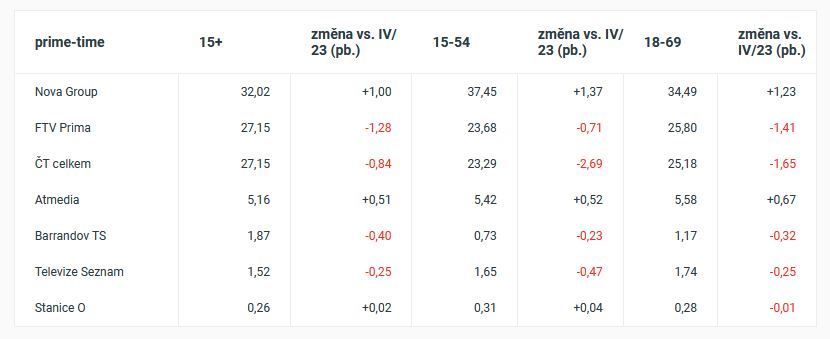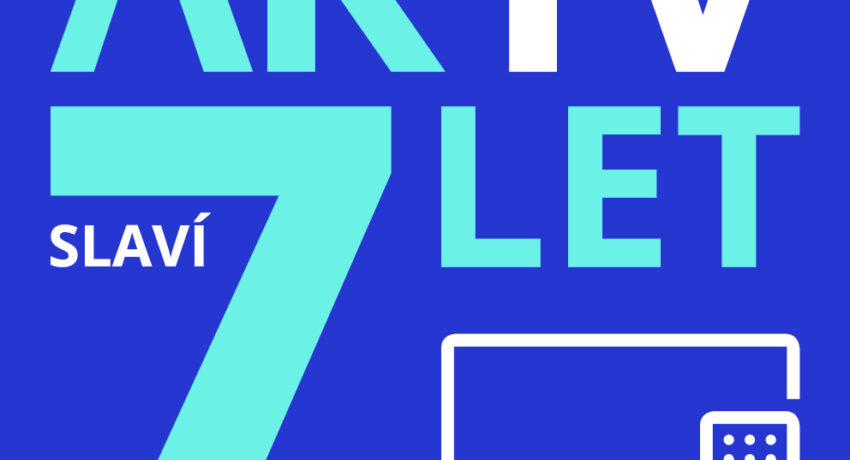Daniel Grunt, who has been CEO of the Nova Group since January last year, has been given a difficult management assignment by the parent PPF Group. He is to transform the most-watched domestic broadcaster so that it can capitalise on the growing interest in online video while not cannibalising traditional broadcasting. Grunt’s task is to develop the Voyo paid streaming service while not competing with the traditional business that brings Nova billions of crowns from TV advertising.
Voyo has been at the centre of a transformation in recent years to bring the TV group into the new digital age. The streaming video library has been testing viewers’ willingness to pay for Nova’s shows, series and films since 2013, but the main impetus came three years ago after the TV group was bought by PPF. The new owners have announced an ambitious goal for Voyo: to acquire one million subscribers for the video library in the Czech Republic and Slovakia by 2025. Grunt tells HN that interest in Voyo is growing so fast that the project may reach the million subscriber mark sooner. It already has more than 800,000 paying viewers in both markets combined, and the project is starting to generate an operating profit.
“My managerial task is to ensure that our media house continues to grow in a market where the amount of time spent on traditional linear broadcasting is declining every year. That is, how to realign the company, products, content distribution and strategy to ensure long-term profit growth,”
says Grunt.
The owners probably chose you for the position of Nova’s CEO last year because you were responsible for the development of the Voyo streaming service in various markets as Chief Digital Officer. That was within CME, the group to which Nova belongs. Will your approach be any different from the previous management of the broadcaster?
In general, my aim was not to make a revolution in Nova. It is a very well-functioning media group that is profitable. My perception is that I have been given a relatively free hand by the shareholder for the digital and strategic transformation of Nova. The way video is consumed is changing, technological changes are occurring, bringing many threats and many opportunities.
Which changes do you see as the main ones?
The deployment of smart TVs has been growing rapidly in recent years. More than half of Czech households now have a smart TV connected to the internet. This gives users a range of possibilities – they have apps, or video on demand. The second factor is that the TV signal distribution via the internet (IPTV), which enables time-shifted viewing, is growing quite rapidly. So fewer and fewer people are watching traditional linear television. People watch programmes at times of their own choosing that suit them best.
We also see the growth of all the other smart devices, the growth of high-speed internet penetration, and data bundles. In short, people are consuming video content where and when they want, which was accelerated by the COVID pandemic. We started to promote Voyo heavily in 2021, making investments in content, teams, the platform, and other things.
What is Nova’s strategy in general?
It has four pillars. The first is to ensure that existing advertising revenues from linear TV are at least maintained. The second is to achieve maximum content reach – i.e. combining traditional broadcasting with time-shifted viewing or consumption via Voyo so that the two distribution channels compete as little as possible. The third pillar is working with brands. Nova is historically an extremely strong brand but recently, no time and energy has been devoted to making the brand well profiled and targeted at specific segments. This includes an effort to clearly profile Nova’s main channels and Voyo. And you can’t do without a good team to work on all this. That is the fourth pillar.
Your competitor Prima is also going the way of better defined and profiled channels. When will viewers notice the changes on Nova?
The audience will see the specific results this year because we spent last year mainly working on internal issues, we wanted to define everything clearly to ensure that it made sense. We are working on the redesign of the main channel and the Nova Cinema channel. That will be a highly visible signal of where we are going. Then other channels will follow, some of which have already been redesigned. We will work harder to make our channels as clear and understandable as possible for viewers. So that they know what they are going to find on them and for whom the channels are intended.
How fast is the viewership of classic television declining?
When we look at a metric called Total TV Ratings, which is actually the time people spend watching classic TV, in our key target group – 15 to 54 year olds – it started to decline significantly last year. The year-on-year decline was about six or seven percent. But at the same time, the time spent by time-shifted viewing is growing proportionately. But not always is it included in the classic linear viewership.
So what are you doing about it? How do you address it?
First, we need to work on getting a bigger share of a smaller viewership pie. In this, we were successful last year. We increased our lead by one percentage point compared to our main competitor. That is a pretty good result in TV ratings. On the all-day viewership, we gained about three-tenths of a percentage point to 33.64 per cent last year. This is important for us because we sell at a premium price. And such a price is justified by the fact that we have a better, more attractive target group and that there is a bigger gap between us and our competitors.
The second point is that we have a product that is in demand, so we logically increase the price of TV advertising. For this year, we came up with a double-digit increase. This will enable us to grow in the traditional part of the TV business in the long term. We have made projections for several years ahead and we estimate that in 2030 our advertising revenue from the traditional linear business will still be at least half of the total. Currently, it is around 75 percent.
How does your investment in Voyo fit into all this?
We are trying to maintain and, if possible, increase traditional revenues to be able to finance our transformation. Voyo is growing extremely. In fact, it is growing every year far beyond our already quite ambitious plans. The revenue from Voyo is starting to be quite an interesting contribution to our TV business. In terms of operating profit, Voyo already earned its keep last year.
Are you considering putting online advertising in Voyo as well?
It is a path that we will probably have to take at some point, but it won’t be this year and most likely not next year either. That reasoning is based on what I said: Voyo is growing very well. In general, the SVOD market (pay video services from HBO, Prima, Netflix, Disney, SkyShowtime and other, which includes Voyo – ed.) in the Czech Republic is still growing at a double-digit rate, up some 26 percent last year. Voyo grew by about 51 percent last year. If we look at this year, the market will grow by about 20 percent, we should still grow faster than the market.
It looks like the growth rate will be quite interesting for the next few years. And one of the main motivators for customers to pay for such a service is that there are no ads. If you include advertising, the growth will slow down. Moreover, in the Czech Republic, the price for digital video advertising is relatively low, for example, compared to the US and Western Europe. It would not compensate for the slowdown. We are watching to see when the market starts to slow down. Then it would make sense to add a cheaper product to Voyo with advertising.
People in the TV industry look at what is happening in more developed Western markets, for example in Scandinavia, and from that they estimate the trends that will come here in a few years. The Swedish streaming company Viaplay, in which PPF has also invested, is struggling with losses. Last year it announced drastic staff and cost cuts. Their subscriber numbers have dropped as well. Isn’t this a warning signal that something like this could happen here?
It is definitely a warning. In my opinion, it is not the result of changes in the market but rather of a wrong strategy. Viaplay has made it their main goal to get as many subscribers as possible at any cost. And they chose the easy way – to get them through partners, such as telecom operators. They were giving relatively large commissions to partners, thus reducing their own profitability. The second thing is that in order to grow quickly and build the brand, they made extremely large investments in content – in sports and especially in creating exclusive content for the platform. If they were doing something like 70 Viaplay originals a year, that is a huge investment. They reported a very high number of subscribers, but the profitability was lacking.
Is there anything else of interest to you that is happening in the TV market in the West?
Of course, we are watching what is happening in Scandinavia, in the US, but it does not mean that it will all be here in three or five years. Western players like Warner Bros., Disney and others are still changing their strategy, they are still fine-tuning. Three or four years ago they chose the strategy of investing in their own video libraries at the expense of their existing business. They have tightened the taps in terms of, for example, licensing their content to other TV stations. Another thing is that these players have almost closed the classic cinema distribution window that was producing huge money. But after two years, they found the same thing Viaplay did – that they were growing fast but getting into big losses. So last year, they took a step back and are returning to their original approach, extending the cinema distribution window for films, then offering films on Blu-ray or pay services, and refocusing on licensing their content to other TV stations or subscription services.
What lessons have you learnt from this?
That it is important not to fly from right to left, from extreme to extreme, but to look from the very beginning for maximum long-term profitability. It’s about balancing the existing business and the new one so that in trying to grow the new one quickly, which can be a nice story, you don’t accidentally kill the old one because then you cannot fund the new things. That’s why I talked about our four-pillar strategy at the beginning, which is to keep or mildly develop the traditional business at all costs.
Has Voyo overtaken Netflix in the number of subscribers in the Czech Republic?
No, it hasn’t.
You announced that Voyo had 800,000 paying users in the Czech Republic and Slovakia in March. Can you give me a figure for the Czech Republic only?
I am sorry we don’t publish it. We create Voyo strategy for both markets together, so we present it together. However, Netflix is still bigger. But we don’t even aspire to be number one. The strategy is that we want to be the strongest local player, we want to be number two in the market and complement the multinational number one. That works well for us.
The goal for Voyo, as initially announced, was to have one million subscribers by 2025 at the latest. You can probably achieve that goal sooner, can’t you?
It looks like we are a year ahead. We are getting significantly faster. I am becoming more and more confident that we will hit one million next year.
Consumer demand in the Czech Republic has been very poor. People have feared inflation and energy prices. Households have cut back on excess spending. How come it has not translated into Voyo growth?
My explanation is that Voyo costs only CZK 159 a month, it is quality entertainment for a few crowns for the whole family – over two thousand titles, our own production, series, romantic stories, two sports channels, reality shows such as Survivor, Big Brother and more. We have even got a kids’ offer. Plus, we are constantly creating new Voyo originals for Voyo. And there is TV content a week earlier and without commercials. So where would a household save money? People will probably not go to the cinema, to concerts or sports events as often, they will cut all the entertainment that is significantly more expensive.
This corresponds to the fact that the average time spent on this platform per week continues to grow year on year. This is a very important metric. The more time a viewer spends on Voyo, the less likely they are to leave. If a household is going to cut costs, by logic Voyo and Netflix will be cut the least. And for other platforms, it will fluctuate depending on when a new series or interesting film is released.
What are the ratings on Voyo?
We are currently averaging less than fifteen hours a week. We are growing.
Are you happy with the price setting? Are you considering different pricing programmes, for example?
As I said, the price at Voyo is low, allowing it to grow faster. Obviously, as our cost of inputs to run and develop the platform and produce content increases, that price should be higher. At the moment, we don’t want to increase it yet.
A few years ago, when the Czech Republic was switching to digital terrestrial broadcasting, the heads of commercial TV stations were hoping that they could impose a charge on some free-to-air formats. For example, broadcasting in higher resolution as in the case of satellites. That debate is no longer going on today, is it?
Our assessment was that it wouldn’t be worth it because we would lose some of the advertising revenue. Those, as I said, still make up 75 percent of our business, so it would be an extreme risk. With the revitalisation of Voyo, it became clear that we could go both ways at the same time. That we can monetise free-to-air channels through advertising revenue and in addition to that have revenue directly from users.
In the past, PPF and Nova CEOs have said they want Voyo to be one of the three paid video platforms that Czech households will have in the long term. But a number of platforms have emerged, do you still think the market will settle on the three main ones?
I am convinced that consolidation will start partly this year, even on a global scale. In February, there was talk of a merger between Peacock and Paramount Plus. Two years ago, we saw the merger of Discovery and Warner, but they still have separate services – HBO Max, Discovery Plus and Eurosport on top of that. The Max service is coming to Europe in May, which will bring it all together. All the big players are looking for ways to save costs, to merge – either by combining offerings or by physically connecting. There are dozens of these services in the US. And one household has between four and five paid services on average. The smaller ones are going to be gradually closed. In the Czech Republic, three or four at most may be profitable.
Recently, the debate about the increase in the licence fee for Czech Television has been reopened. One of the options is that ČT would get more space for advertising. You might not like that very much…
My comment is that the process has finally gotten on track. Two working groups have been set up, comprising all market stakeholders. They are discussing what the optimal solution should be. At the same time, they are beginning to debate about the role of ČT. How much money such an institution actually needs will depend on that. I cannot say whether ČT needs 300 million, 500 million or two billion. It is just not right that the Ministry of Culture announced how the funding for ČT would be set up without prior discussion, without defining the public service, without saying what will be created with the money. The proposed extension of the definition of the payer and an increase in the licence fee would be a kind of blank cheque for an extra CZK 2 billion a year. That is huge money – more than one new premium channel would be built for that. If there is no definition of what ČT is supposed to do with it, it is a huge threat to the whole market.
On the one hand, private TV stations say they don’t like a competitor getting that kind of money, but you don’t want more competition in the advertising field either.
The way it is currently set up is fundamentally wrong. It is a kind of dual system of financing ČT. There is an entity on the market that is paid for by the viewers, i.e. by licence fees, but it also improves its budget on the advertising market where commercial entities operate but for which this is the only source of income. Part of the discussion on the financing of ČT should probably have included some increase in the licence fee or an extension of the VAT deduction, but it should also have included the fact that ČT would cease to operate on the advertising market.
CME’s owner, the PPF Group, has other activities in finance and telecommunications. Is there anything that could create synergies for Nova? I would imagine that some services may be offered as a package – for example, Voyo and a more favourable account with Air Bank and so on.
At the beginning of last year, we started our first cooperation with O2. The operator’s customer can include Voyo in the same invoice and it is more profitable for them in general. That is the first thing we are doing. Logically, there is also a sharing of experience. O2 as a strong telecom player is far ahead in working with CRM, for example, so that is where we are learning. In the beginning, it helped us, but now I think we are learning from each other. One example is the launch of the Unity platform, through which PPF is strengthening the combined sales of its subsidiaries’ services.
Can it go any further?
It can always go further. There are plenty of scenarios and possibilities. We have to evaluate them and say whether or not any of them make sense.
A big issue last year was the topic of inflation, i.e. price growth. The cost of producing programmes and TV series also rose, as did the cost of energy. Did you have to adjust some production schedules because of that?
Our advantage is that our business has had good results in terms of revenues. Television advertising, and Voyo in particular, has delivered more money than we expected. We didn’t even plan on being in the black with Voyo last year. But I agree that the price increases are being felt everywhere – whether it is energy, locations, or studios.
The production market in the Czech Republic was very tight last year. Players like HBO left, but others are back. Is that still the case?
Yes, we are in competition with many groups here and the demand is both local (because of Voyo and the competitor Prima, which has started to invest heavily) and foreign. In fact, the number of projects being created here has multiplied. HBO may have given up its local ambitions but Amazon, for example, is busy filming its series here at the Barrandov studios, such as Wheel of Time. Netflix filmed The Grey Man here. Then there are German TV stations that also film series here. This creates a huge overflow of demand for various professions – from creative ones, such as scriptwriters and script editors, to catering, editing, sound, lighting and all the supporting professions.
Did prices go up at a double-digit rate last year, for example?
We are trying to keep growth below double digits in the negotiations. We are successful but the price increase is noticeable. Given the costs that we have with production, even a single-digit price increase is a huge number.
How much does Nova invest annually in programme production?
I can’t give you a specific figure, but I can tell you that last year we put the most money into production ever. This is related to our long-term strategy that we set last year. We produce the most series and the most individual shows in the 30-year history of Nova. And we are going to continue this year.
So this year is going to be another record for spending on your own production?
Yes. It’s related to what I said at the beginning – we want to strengthen our position in the market, so we need to invest much more in quality local production. Whether it is for TV or Voyo. We increased our investment massively last year and it will be even higher this year.
Where else did the investment go?
Last year we also started to focus more on news and journalism. When I talked about profiling and segmenting our brand, here is an example: as part of the news (Televizní noviny), we started working on how we want to be perceived.
What exactly does that mean?
We go back to the roots, dealing with the problems of ordinary people, trying to explain in a simple way and in context what is happening around them, and how it affects them. At the same time, we also stand up for their rights. That is why, for example, we launched a programme called Na vaší straně (On Your Side) this year where we fight for people not to be ripped off or manipulated. After many years, we have relaunched a political debate show on Sunday. It is called Za pět minut dvanáct (Five Minutes to Twelve) and I am convinced that such a show was missing in our programme. We have enhanced Střepiny to include investigative reporting. And we have brought back our weekend show (Víkend) and given it new airtime, which has also been beneficial.
Could it happen that there will be something like an editorial position on a certain topic within the newsroom at Nova if the Czech Republic were to decide on some major issues, such as leaving the EU?
The example you used is of course extreme. I can imagine that we will deal with it in an extreme situation such as a referendum on leaving the EU or NATO. But up to this point, we are maintaining maximum balance and neutrality, and we are proud of it. This was evident in the presidential election and in the way we tried to express ourselves on all geopolitical and social issues. I enjoy our coverage and I am pleased with the quality of my colleagues’ work.
And now about investments in sports, which you consider to be another pillar of the strategy. O2 TV is building its own sports content in parallel – it has exclusive rights to local ice hockey and football leagues. Wouldn’t it be a good idea to make use of that for Nova, since you are one group?
O2 is already working on it. It offers its customers access to Nova’s sports channels and sports channels via Voyo. This means that O2 can work with Nova to provide customers with the biggest sports offering on the market.
What about buying the rights to sports shows? Can’t there be some synergies if the rights keep getting more expensive?
The issue of expensive rights is intensifying. Champions League, Premier League or Formula 1 rights are extremely expensive. And even domestic rights already cost huge amounts of money. Rights are usually bought for a certain period – two, three or four years. And it seems to me that with each new period, the prices are almost double the previous ones. There is a lot of demand pressure coming from multinational groups and platforms.
But that doesn’t mean you are adjusting your focus on the sport, does it?
We see sports as premium content, which is the most expensive. That is why we only offer it through paid services. This year we bought the rights to Formula 1, we have MotoGP. In terms of football, we actually have everything. It will be available on the pay channels Nova Sport 1 to Nova Sport 6. There won’t be Formula 1 on Voyo, it will only be available through the operators. This is the only option because sports content is so expensive that we cannot run it on a classic free-to-air terrestrial TV channel.
Source: archiv.hn.cz

















